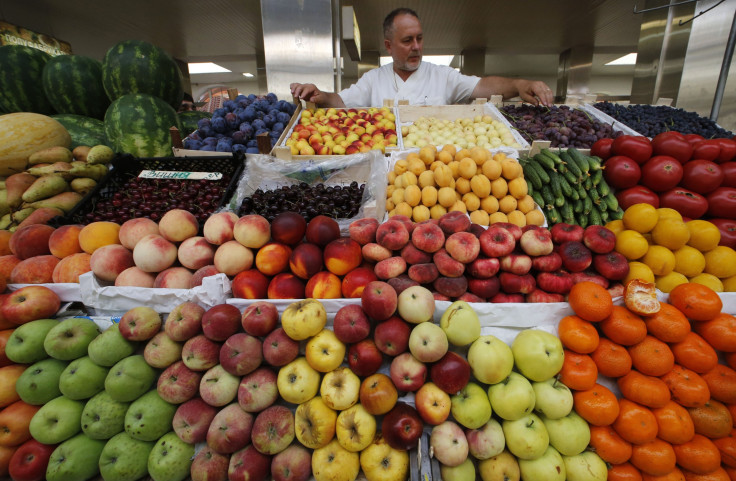Fruits And Veggies Aren't Eaten In Recommended Servings By Up To 88% Of Adults Worldwide

Fruits and vegetables are key sources of a number of essential nutrients, plus eating the recommended daily allowance has been linked to reduced risks of cardiovascular disease, diabetes, and stroke. What’s not to like? Still, a worldwide study finds the majority of adults — up to 88 percent — reported not eating enough fruits and vegetables each day.
Surprisingly, though, in some regions of the world, those who ate the recommended number of servings were still not getting enough phytonutrients. “The WHO panel on diet, nutrition and prevention of chronic diseases recommended a daily intake of at least 400 grams [or 5 servings] of fruits and vegetables,” wrote the authors. Are you eating enough of what keeps you healthy?
Fruits and vegetables contain an array of bioactive substances, known as phytonutrients. These naturally occurring substances protect the vitality of plants. Some guard a plant (and its fruit) from UV radiation, while others prevent insect attack. Studies indicate phytonutrients, as a part of our diet, play a role in protecting our human health as well. Some help reduce the risk of age-related macular degeneration, while others support memory. One phytonutrient, the flavonoid quercetin which is found in apples and onions, has been shown to provide antioxidant effects important for the prevention of certain cancers. It's not just nutrients, then, but also phytonutrients that help to keep us strong each time we eat a vegetable.
For the current study, researchers from California State University and Nutrilite Health Institute wanted to figure out how many phytonutrients adults were consuming each day all across the globe. They began by estimating fruit and vegetable consumption and from there, they estimated the intake of nine select phytonutrients based on data supplied from various sources, including the Department of Agriculture. Their findings were both predictable and surprising at once. Most adults — up to 88 percent — reported not eating enough fruits and vegetables. Specifically, adults who don't eat properly are generally consuming about one-and-a-half to three total servings each day.
The surprise came when the researchers analyzed levels of phytonutrients worldwide. In some geographic regions, total phytonutrient intake by adults eating more than five servings of fruits and veggies each day were found to be lower than the total intake of adults eating less than five servings. “Estimated intakes of phytonutrients from fruits and vegetables varied across the 13 geographic diet clusters, reflecting regional differences in … the specific types of fruits and vegetables available,” the authors wrote. Eating a variety of fruits and veggies, then, may be more important than eating five servings.
On average, though, total phytonutrient intake by adults who ate more than five servings of fruits and veggies each day was found to be two- to six-times the total phytonutrient intake of adults eating too few servings. In the end, the time-honored nutritional message remains strong and true. If you want to do all that is within your power to remain healthy simply eat five servings of a variety of fruits and veggies each and every day.
Source: Murphy MM, Barraj LM, Spungen JH, Herman DR, Randolph RK. Global assessment of select phytonutrient intakes by level of fruit and vegetable consumption. British Journal of Nutrition. 2014.
Published by Medicaldaily.com



























